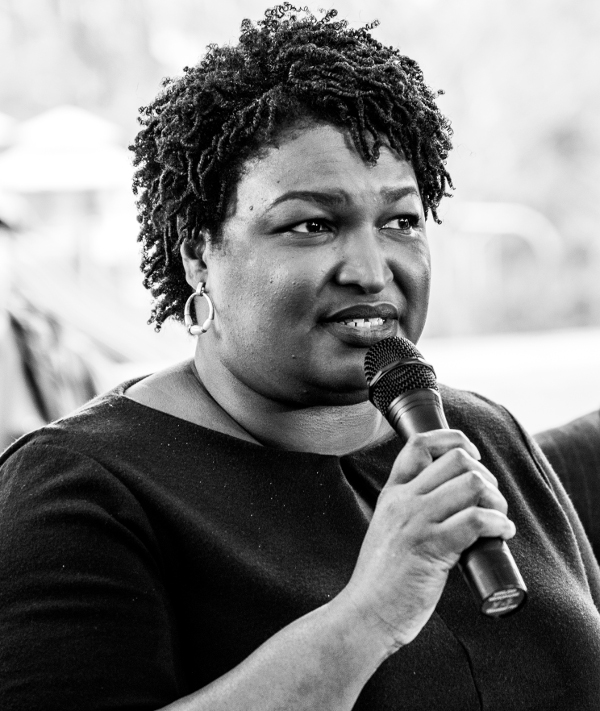
irregularities.
PHOTO/JOHN RAMSPOTT
ATLANTA, GA — After Stacey Abrams lost her bid to become the first African American woman to become governor of Georgia, she said that she was angry, sad and despondent for eight days. But she turned this anger into action. She crisscrossed Georgia making speeches and rallying for free and democratic voting rights. She founded the Fair Fight Action, a voting rights group that is suing Georgia officials over voting irregularities.
Her opponent, Brian Kemp, not only ran against her for Governor but he oversaw the elections as Secretary of State. On November 7, 2018, Kemp declared victory over Abrams with 50.3% of the vote versus her 48.7%, while Libertarian Ted Metz trailed behind both with 0.9%. The following morning, Kemp resigned as Secretary of State.
Abrams challenged Kemp’s actions in the election because in his position he purged voting rolls, disqualified voters whose names varied across the state databases and he closed polling places. Stacey Abrams gave examples of the “systemic dismantling of our democracy” by citing that thousands of Georgians were purged from the rolls wrongly, including a 92-year-old woman who had voted in the same area since 1968. She was a civil rights leader. Abrams also stated that thousands stood in long lines for hours because the polling places were understaffed and more than 300 had been closed. Thousands of people had been put on hold with their registrations and many absentee ballots were not counted because voters had not received them in time, and couldn’t meet the deadline to return them.
But, on November 16, every county certified its votes with Kemp leading by 55,000 votes so Abrams stated that she could not win the election and she suspended her campaign. She contends that because Brian Kemp oversaw the elections for eight years that there could not be free and fair elections in Georgia.
Abrams’ campaign turned out a record number of Black, Latino and Asian voters and she won a larger share of the white vote than President Barack Obama, Jason Carter and as well as Michelle Nunn. Presently, she is considering running either for the Senate or making another run for governor of Georgia. Her platform consists of expanding Medicaid insurance, prioritizing spending on public education and to overhaul Georgia’s criminal justice system.
Stacey Abrams lost the election by 1.3 percent of the vote. She explained that there was a massive increase in voter registration and turnout for the 2018 elections and she revealed the systemic problems that occurred. Thousands of Black votes in Georgia disappeared. Eventually, there was a congressional oversight committee tasked with looking into charges of voter suppression in the Georgia November 2018 midterm elections. What they found is that there were intentional efforts by Georgia’s former secretary of state, Brian Kemp, who is now governor, to disenfranchise Black voters.
Presently, Georgia has a governor that won by not playing fair. Stacey Abrams has a bright future with her campaign against voter suppression and has vowed to continue her Fair Fight Action.
